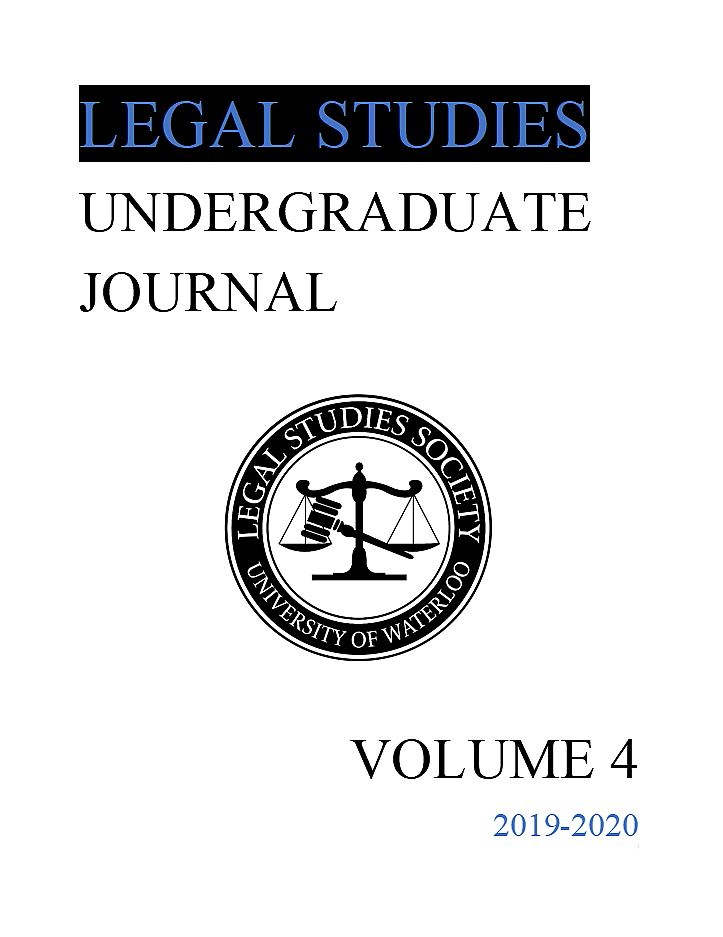An Infection of Noble Causes: An Examination of the Effects of Noble-Cause Corruption on the Canadian Justice System
Abstract
Influenza does not usually pose a significant threat to one’s overall health. Most people who contract the seasonal illness can easily overcome their flu-like symptoms with over-the-counter medication. In some cases, however, influenza can expose a person to more serious bacterial infections like pneumonia. Pre-existing conditions, respiratory illness for example, increase the likelihood that infections like pneumonia will enter the body successfully, spread through the bloodstream, and trigger a multi-system infection (Ducharme, 2018). While such instances are rare, the results can be deadly.
Noble-cause corruption is a form of corruption that occurs when individuals adhere to the problematic reasoning system of ‘the ends justify the means’ (Grometstein, 2005). Noble-cause corruption can be likened to influenza in the way that it affects the criminal justice system. We can think of it as an infection that causes the justice system to develop seemingly harmless ‘symptoms’ (or signs) of impaired function in the form of unit failures (Thompson, 2008). Pre-existing institutional conditions (Joy, 2006), like the tight coupling of crime-fighting units (Thompson, 2008), significantly increase the likelihood that more severe infections, such as socio-legal pressures, will successfully infiltrate the justice system and distort the conduct of individual agents. These factors work individually and together to produce consequences that are potentially lethal for due process and may result in wrongful convictions.
Published
Issue
Section
License
All authors have referenced and footnoted all ideas, words, and/or other intellectual property from other sources used in the completion of the essays. All authors have included a proper reference list, which includes acknowledgement of all sources used to complete the paper. The essays within this journal shall not be reproduced in any form without permission of the publisher or the author, and shall also not be resubmitted in any way for use in any academic setting.Â

